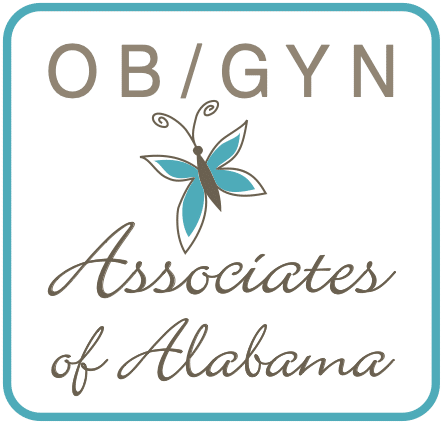
Your Guide to Osteoporosis: Risks, Symptoms, & Solutions
You don’t need anyone to tell you that women are strong—and as we age, that strength and wisdom combine to form a truly formidable force. Unfortunately for many women in their middle and later years, the body begins to betray that strength. Bones thin and weaken, leaving some women unable even to sneeze without risking a fracture. When osteoporosis sets in, it can make us feel diminished—but there is hope.
Osteoporosis is a silent thief that affects millions of women worldwide. Often underestimated, this condition weakens our bones, putting us at risk of fractures and long-term complications. By understanding what osteoporosis is, identifying the risk factors, and taking preventive measures, we can protect ourselves and preserve our bone health for years to come.
What is Osteoporosis?
Osteoporosis is a chronic condition characterized by low bone density and deterioration of bone tissue. It occurs when the body loses too much or makes too little bone, making our skeletal structure fragile and more susceptible to fractures. Although osteoporosis can affect both men and women, postmenopausal women are particularly vulnerable, due to hormonal changes that occur during menopause.
When a woman reaches menopause, her estrogen levels drop significantly. Because estrogen regulates bone metabolism, this drop can slow the production of new bone cells.
What Are the Signs of Low Bone Density?
Osteoporosis is often referred to as a “silent disease” because it often progresses without noticeable symptoms until a fracture occurs. However, a few signs may indicate its presence:
- Back pain
- Loss of height over time
- New weakness in strength
- Receding gums
- Stooped posture
- Fractures that occur easily, even with minimal trauma
When to See Your Doctor
If you experience any of these symptoms, it’s crucial to consult with your healthcare provider right away. And one of the many reasons to go to your annual OB/GYN visit is to get screened for osteoporosis. The sooner we can intervene, the better your outcomes are likely to be. If you are in or near menopause (ages 40-50), make your appointment today!
Who is at Risk for Osteoporosis?
While osteoporosis can affect anyone, roughly 80% of cases occur in women. Certain other factors increase the likelihood of developing the condition, as well. By recognizing these risk factors, we can take proactive steps to minimize our chances of osteoporosis.
- Age and Gender: Women over 50 are most susceptible to this condition.
- Family History: A family history of osteoporosis can contribute to your risk.
- Hormonal Changes: Estrogen plays a crucial role in maintaining bone density, making menopause a critical period to screen for osteoporosis.
- Lifestyle Choices: Smoking, excessive alcohol consumption, a sedentary lifestyle, and a diet poor in calcium and vitamin D can weaken bones.
- Body Composition: Being underweight or having a small frame increases your risk.
- Certain Medical Conditions: Conditions like rheumatoid arthritis, celiac disease, and some hormonal disorders can affect bone health.
- Long-Term Medications: Prolonged use of corticosteroids, anticonvulsants, and certain cancer treatments can impact bone density.
Osteoporosis Treatment & Prevention
There is no cure for osteoporosis, but the good news is that there are numerous ways to prevent or manage the condition effectively. Let’s explore some strategies that can help.
Adequate Nutrition for Bone Health
A diet rich in calcium, vitamin D, and other essential nutrients is crucial for maintaining bone health. Incorporate dairy products, leafy green vegetables, fortified cereals, and oily fish into your meals. If you need help maintaining a healthy diet, consider joining a weight management program like SmartFit!
Regular Exercise
Exercise is one of our most important defenses against bone loss. Engage in weight-bearing exercises, such as walking, dancing, or strength training, to stimulate bone growth and enhance bone density. Talk to your doctor before you start a new exercise program to ensure it’s safe for you.
Lifestyle Modifications
Quit smoking, limit alcohol consumption, and maintain a healthy body weight. The American College of Obstetricians and Gynecologists recommends women drink no more than three alcoholic beverages per occasion and no more than seven per week.
Hormone Therapy
Discuss hormone replacement therapy (HRT) options with your healthcare provider during menopause to maintain bone health. Today’s HRT options, including bioidentical hormones, are highly effective, safe, and gold-standard treatments for menopause symptoms and bone health!
Regular Check-ups
Periodic bone mineral density tests (DXA scans) can help detect bone loss early and guide appropriate intervention.
Fall Prevention
Minimize the risk of falls in your home by ensuring adequate lighting, removing trip hazards, wearing appropriate footwear, and addressing any vision-related issues you may have.
Make Your Gynecologist a Partner in Health
If you’re experiencing new or unexplained weakness, are going through menopause, or it’s simply been a while since your last OB/GYN visit, call OB/GYN Associates of Alabama! Our team is here to help, not to judge—we’re ready to be your partner in all aspects of health and connect you with the resources you need to live life to the fullest. Meet our team of compassionate OB/GYNs in Birmingham, Hoover, & Gardendale, and get in touch today!
Bone Density & Osteoporosis Treatment in Birmingham, AL
OB/GYN Associates of Alabama has been helping women at every stage of life since 1965. Our experienced and personable physicians practice in three convenient locations: downtown Birmingham at St. Vincent’s, Hoover near Tattersall Park on Highway 119, and Gardendale on Highway 31/Decatur Highway. Call (205) 774-6994 to request an appointment at your nearest location!
Thank You For Choosing OB/GYN Associates Of Alabama & SmartFit Weight Loss.
Please complete our form or call us at (205) 271-1600 for general questions or to get started.


